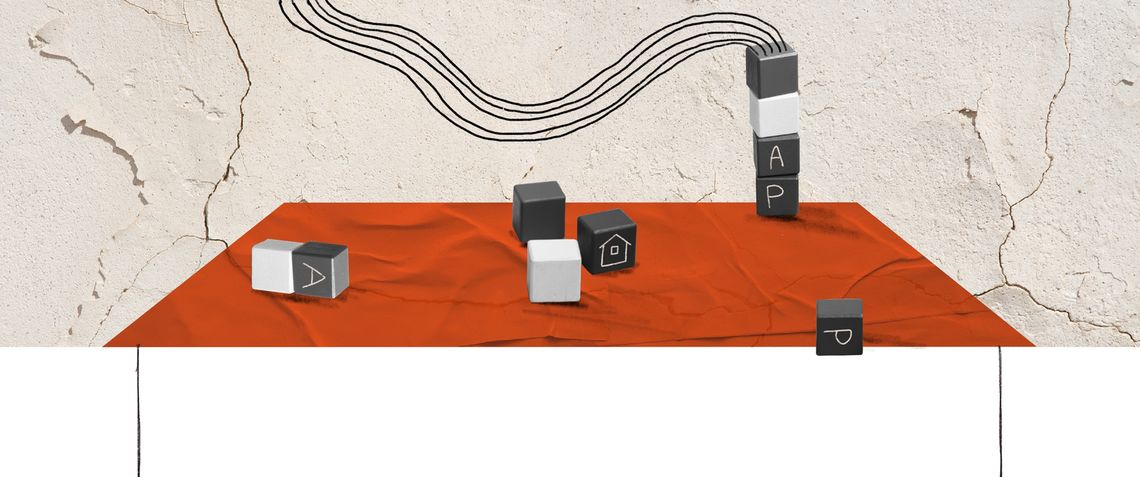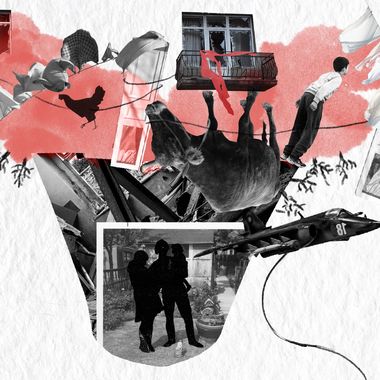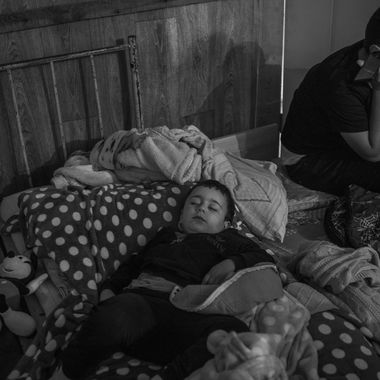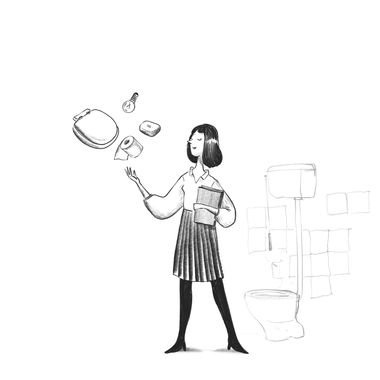Thu Jun 24 2021 · 4 min read
Children and War Trauma: “We Have to Stop Lying to Them”

By Astrig Agopian

Illustration by Armine Shahbazyan.
“If you had a magic wand, what would you change?” asks psychologist Anush Grigoryan. The group of four children playing with clay raise their heads.
“People,” says 11-year-old Suren. “Why?” she asks the little boy.
-
They’re bad.
-
Why do you think so?
-
They became mean.
-
You would change the world?
-
I would change people. It would get better.
Suren lost his father during the war. Like him, children who lost relatives or had to flee their native villages in Nagorno-Karabakh meet every week in Kapan’s Center for Children after school to play, draw and talk to psychologists.
“I only treat war trauma now. There is so much need,” says Anush Grigoryan. She has been working as a psychologist for eleven years. “They play, create things, read, talk to each other. I give them stories that they have to finish. I give them the beginning, and they need to imagine how it plays out. Stories about loss. What is essential is how they will end it. If it’s half-finished, then it means we have more work to do. Because they need closure,” explains Anush.
The kids are smiling, playing in the room, while Anush asks them about their day, their hopes, their fears. “This is a drawing of the people I trust,” says Suren, showing a colorful hand with names written on each finger. He included the psychologist to his list. “I trust Anush because she keeps my secrets.”
Even though they are very young and express themselves with the simple words of children, there is something disturbing in the looks of most of these kids. They seem older.
Tigran is 11 years old. He looks very mature and serious for his age. He smiles a lot and answers every question diligently, even though he blushes a little. Born and raised in Zangelan, he had to flee Artsakh with his family during the war.
“I want to go back to Zangelan, I miss it,” he says. “There was my bike, I left it there when we fled. I miss my bike. My friends also left, but they’re not here. My favorite thing was to bike there. Here, I do not bike.”
Tigran was playing at home when Azerbaijani troops entered his village. His father came and got him; they immediately drove to Armenia to join the rest of the family which had already fled. “I was not scared, just a little,” says Tigran. “But in the car, with our stuff, driving, I felt like I could not go back.” Anush convinced him to get a new bike.
Overcoming the Taboo of Mental Health
“Parents bring their kids to a psychologist more easily than they would go themselves. Sometimes, I would even say they use the kids to come get help for themselves,” says Anush.
Seeking help is often seen as a sign of weakness in Armenia, and mental health remains a taboo topic. When it comes to children, there are also specific cultural habits that are dangerous, according to Anush. “Children understand way more than adults think they do, so we have to stop lying to them,” she says.
“I had a case of parents who told their kids that, when you die, it’s like going to sleep. Now that kid panics every single time someone goes to sleep, tries to go and wake them up,” says Anush.
Ellen is 7 years old. She does not speak much and nervously plays with the clay. Her uncle died during the 2020 Artsakh War, but her mother did not tell her the truth. Ellen started having nightmares and visions.
“She imagined military men holding Kalashnikovs and coming toward her,” explains Anush. “I understood she was having visions of her uncle. She could not sleep anymore. I told her mother to stop lying, to stop insisting that he was in the hospital, to tell her he is dead, to help her get a sense of closure.”
Not telling children that one of their relatives died is quite common. As adults, we tend to think it is unbearable to see a kid in emotional agony. But that’s selfish of us – we prevent children from moving on and might create some other issues.
“If you lie, kids can get a sentiment of abandonment and of being useless, which stays with them through adult life. So, you need to tell the kids: he is not just gone to the hospital or on holidays. You need them to understand and accept the loss. It is painful of course, but necessary,” says Anush.
The ways to explain death vary depending on age groups, but there are ways to address the topic with all children. “With the younger ones, a metaphor I like to describe the feelings triggered by loss is the one of seasons. We use nature a lot, so we say for example now there is spring and then there will be summer, fall and winter. You will feel all this, when the leaves fall from the trees, it will be the end of a cycle,” says Anush.
A Lack of Resources
Many children who have experienced war trauma cannot just go back to school easily afterward. “Teachers do not always behave the right way,” explains Anush. Working individually with children is necessary, but making them play in groups with children who have lived the same experiences can be helpful.
The reason why many teachers are not able to help their pupils is that they are not trained. There are simple things they can do, according to Anush: “You need to talk to the kid in a safe space, hold his hands, look him in the eyes. It’s hard for adults, too.”
Armenia counts less than 200 psychiatrists, but since psychological care is not regulated, there is no official number concerning psychologists. “We have a lack of resources: not enough people, not enough people who are well-trained, and not enough of them outside of big cities,” says Anush.
also see
The Children of War: On the Brink of Life and Death
By Astghik Karapetyan
Children also became a target of Azerbaijan’s large-scale military aggression during the 2020 Artsakh War. Their basic rights to life, health, family and community were consistently violated.
Hanging in the Air: When Even Your Displacement Is Unrecognized
By Gohar Abrahamyan
The thousands displaced by the 2020 Artsakh War are asking “What do you expect me to do?” But, no one has an answer for them.
When the Only Imperative Is to Live
By Kushane Chobanyan
The war has infiltrated almost every Armenian home. While soldiers are fighting on the front, a new generation of children and their families who escaped this new war in Artsakh are looking for ways to cope with the new trauma.
The Seat
By Talin Grigorian
In this tiny self-declared and unrecognized Republic where her ancestors once lived, Anahit tries to reassess her existence while she wages a battle for the seat.






